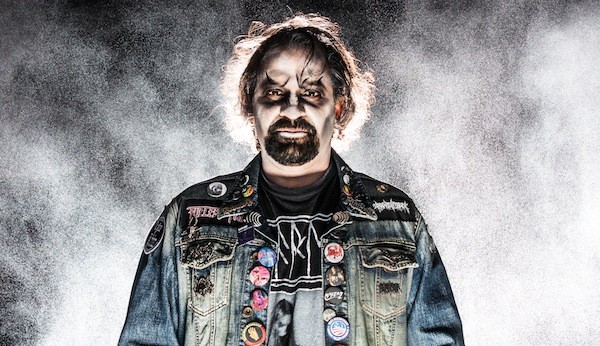News release
The dark side of black metal music
Montreal, October 29, 2013 – With Halloween around the corner, it’s not unusual to see corpses walking down the street. For some members of the black metal1 music scene, however, that style of dress is a daily uniform. Beneath the face paint are people from all walks of life, yet in a small but vocal minority of black metal fans there lurks an undercurrent of xenophobic beliefs propagated by online interactions.
1. black metal /blæk ˈmɛtl̩/ n. — a type of heavy metal music typically characterized by a fast tempo, heavily distorted guitars, shrieked vocals, and a lyrical preoccupation with evil and suffering, often with references to the occult or Satanism. (For an example see Taake’s classic video for Nordbundet)
Concordia University education professor Vivek Venkatesh sheds light on the dark side of black metal in a chapter appearing in a forthcoming peer-reviewed book, Educational, Psychological, and Behavioral Considerations in Niche Online Communities (IGI Global).
His research into the proliferation of xenophobia in online blogs and forums by black metal scene members can serve as a cautionary tale for society at large of how otherwise self-contained racist chatter could influence the larger public to consider adopting racist ideologies.
A member of the black metal music scene himself, Venkatesh is uniquely positioned to investigate a music genre that is as much about individual experience as it is about screeched vocals and rapid-fire drumbeats. He explains that the black metal scene bucks the communal trend reflected by many other musical fan bases. “The black metal scene promotes the individual, not the collective. That attitude is amplified in online interactions, where the individual personalities and voices of scene members come to the fore.”
Those voices are often focused on the core themes of black metal: hostility, suicide, violence, and solitude — as well as Satanic and anti-Christian ideologies. When these themes are coupled with imagery of harsh Scandinavian winters typically evoked in the lyrics of black metal (a music genre whose second wave saw the light of day in Norway and Sweden), a bleak outlook on life emerges.
For Venkatesh — and for many members of the black metal scene — such themes are cause for reflection and introspection. But for a xenophobic subgroup of black metal music fans, these ideas represent an excuse to propagate negativity. This is especially true when the Scandinavian premise is taken further than the invocation of a wintry landscape when coupled with existing socio-political conditions such as multiculturalism and immigration policies; for example, black metal’s roots can carry a mythology that appeals to white supremacists because of a call for a self-governing society with pagan ancestry.
“This point of view in no way represents all black metal scene members,” Venkatesh is quick to point out. “But an important subgroup is finding a stronger voice through open online forums that allow individuals to interact with like-minded people and influence others. Take this along with the solipsistic focus of the black metal scene, and xenophobic sentiment becomes something freely expressed and often supported.
Venkatesh hopes his work will remind members of the black metal scene that, “Even though the focus on the individual is important and the anarchic sentiment of black metal is a defining trait, scene members have a responsibility to stand up against racist acts and denounce those who use black metal as an excuse to propagate hate speech.”
About the research: This chapter was co-written with professor Jeffrey Podoshen of Franklin & Marshall College in the USA, Concordia alumnus and metal journalist David Perri and Kathryn Urbaniak, who holds an MA in Educational Technology from Concordia. It will appear in Educational, Psychological, and Behavioral Considerations in Niche Online Communities, co-edited by Venkatesh, fellow Concordia professors, Juan Carlos Castro and Jason Lewis, and Jason Wallin from University of Alberta.
Source
© Concordia University
 Vivek Venkatesh is a professor and a metal fan | © Concordia University
Vivek Venkatesh is a professor and a metal fan | © Concordia University